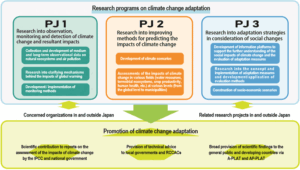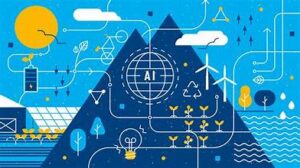
Artificial Intelligence (AI) has emerged as a transformative force in numerous fields, and its impact on climate change research is profound and far-reaching. As climate change continues to pose a significant threat to our planet, AI technologies are being leveraged to enhance our understanding, predict future scenarios, and develop innovative solutions. This article explores the role of AI in advancing climate change research, highlighting key innovations and their impacts.
1. Enhanced Climate Modeling
AI has revolutionized climate modeling by improving the accuracy and efficiency of simulations. Traditional climate models rely on complex mathematical equations and significant computational power, often taking weeks or even months to run simulations. AI algorithms, particularly machine learning (ML) models, can process vast amounts of climate data more rapidly and accurately.
Key Innovations:
- Machine Learning Algorithms: These algorithms can identify patterns and trends in climate data that might be missed by traditional models. For example, neural networks can predict temperature changes with greater precision.
- Data Assimilation: AI techniques enhance the integration of observational data with climate models, improving the accuracy of predictions. By continuously updating models with real-time data, researchers can achieve more reliable forecasts.
Impacts:
- Improved Accuracy: AI-enhanced models offer more accurate climate predictions, helping scientists and policymakers make informed decisions.
- Faster Computation: AI speeds up the simulation process, allowing researchers to explore more scenarios and refine models more frequently.
2. Advanced Data Analysis
The vast amount of data generated by climate research, including satellite imagery and sensor data, can be overwhelming. AI excels in analyzing large datasets, uncovering insights that might be difficult to obtain manually.
Key Innovations:
- Satellite Data Interpretation: AI algorithms can analyze satellite images to monitor deforestation, ice melt, and other environmental changes. Convolutional neural networks (CNNs) are particularly effective in image recognition tasks.
- Predictive Analytics: AI can forecast climate-related events such as extreme weather patterns and natural disasters by analyzing historical data and identifying trends.
Impacts:
- Enhanced Monitoring: AI enables real-time monitoring of environmental changes, providing valuable information for timely interventions.
- Early Warning Systems: Predictive models help in issuing early warnings for natural disasters, potentially saving lives and reducing economic damage.
3. Optimizing Renewable Energy
AI plays a crucial role in optimizing the use of renewable energy sources, which are essential for mitigating climate change. AI-driven solutions can enhance the efficiency of energy generation, storage, and consumption.
Key Innovations:
- Smart Grids: AI can manage and optimize smart grids, ensuring a balanced distribution of renewable energy. By predicting energy demand and adjusting supply accordingly, AI helps reduce wastage and improve grid stability.
- Energy Storage Management: AI algorithms optimize battery usage and storage, enhancing the reliability of renewable energy sources like solar and wind power.
Impacts:
- Increased Efficiency: AI improves the efficiency of renewable energy systems, making them more viable alternatives to fossil fuels.
- Cost Reduction: Enhanced energy management reduces operational costs and increases the economic feasibility of renewable energy projects.
4. Supporting Climate Policy and Decision-Making
AI assists policymakers and researchers by providing actionable insights and supporting evidence-based decision-making.
Key Innovations:
- Scenario Analysis: AI can simulate various climate scenarios and assess the potential impacts of different policies. This helps in evaluating the effectiveness of proposed measures before implementation.
- Stakeholder Engagement: AI tools facilitate communication and collaboration among stakeholders, including governments, businesses, and NGOs. This ensures that climate policies are well-informed and aligned with scientific evidence.
Impacts:
- Informed Policy Making: AI-driven analysis provides policymakers with robust data to formulate effective climate policies.
- Enhanced Collaboration: AI tools promote collaboration among diverse stakeholders, fostering a unified approach to tackling climate change.
5. Addressing Climate Change Adaptation and Mitigation
AI also contributes to climate change adaptation and mitigation strategies, helping communities and ecosystems cope with the impacts of climate change.
Key Innovations:
- Resilience Planning: AI models assist in developing resilience plans for communities vulnerable to climate impacts. By analyzing risk factors and vulnerabilities, AI supports the design of adaptive strategies.
- Ecosystem Monitoring: AI technologies help monitor ecosystems and biodiversity, guiding conservation efforts and ensuring the sustainability of natural resources.
Impacts:
- Enhanced Adaptation: AI supports the development of effective adaptation strategies, helping communities better prepare for and respond to climate impacts.
- Sustainable Conservation: AI-driven monitoring aids in the conservation of ecosystems and biodiversity, contributing to long-term environmental sustainability.
Conclusion
Artificial Intelligence is revolutionizing climate change research by enhancing climate modeling, advancing data analysis, optimizing renewable energy, supporting policy-making, and addressing adaptation and mitigation efforts. The integration of AI technologies offers a powerful toolset for tackling one of the most pressing challenges of our time. As AI continues to evolve, its potential to drive innovative solutions and impactful research will only grow, paving the way for a more sustainable and resilient future.



